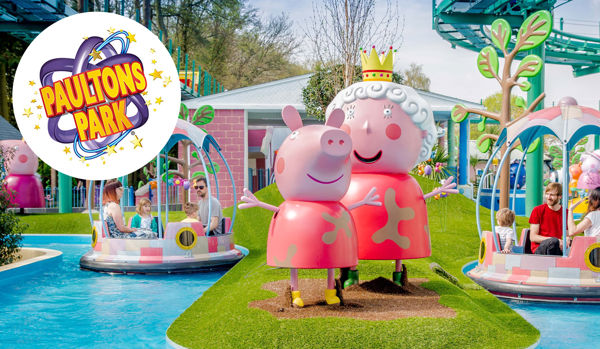Home-schooling continues to disrupt many families throughout the UK and every families’ circumstances have meant that its success is being felt differently by many. Whether you’re engaged in a constant battle to keep the kids sat in front of the laptop for their latest remote learning lesson or whether you’re struggling to get online, there are many fun activities that can be done at home using everyday household items that will ensure your child does not get left behind. From simple Maths tasks to English exercises, child research psychologist Dr. Amanda Gummer recommends fun and easy ways every family can get involved in that won’t require you to break the bank.
Maths
Getting your child to engage with numbers can be quite tricky when they are young, but there are some simple ways to get them to learn skills such as counting, fractions, sequences, multiplication and division without them even realising. Here are some quick and fun ideas of things to do:
- Counting: Whether indoors or outdoors, counting is a great way to easily get children to practice their numbers. Get them to count out the different number of leaves on a plant, the wheels on a toy or how many spoons there are in the drawer. Make it harder by getting them to work on their addition and subtraction. For instance, if you had two apples and 3 oranges how many pieces of fruit do you have?
- Bonus: if they are learning a Modern Foreign Language why not get them to count out the items in the language they are learning? (e.g. uno, dos, tres, cuatro,…).
- Order/Sequence: A fun way to get young children engaged with sequencing is to get a collection of items from around the house and get them to order them in different ways. Whether it is from tallest to smallest or by the colours of the rainbow. You can also get the kids to arrange them into a sequence and you have to guess what rule they’ve used.
- Pattern recognition: Try playing with bricks and building towers or items following set patterns (i.e. blue, red, blue, red, etc.) making it more difficult as you go. Other ways to build on this are by taking your child around the house to identify the different colours, patterns and sizes of household items such as curtains, carpets, clothes, etc.
- Fractions: Find something spherical, be it an apple or an orange or a pizza or cake and consider the different ways that it can be divided. For instance, if you were to cut a cake in half do they recognise that it has been cut in half and that if you halved it again it would be in quarters? For older children, why not read a book and whilst reading, track their progress by getting them to work out what fraction of the book they have read and what page in the book would mean they’ve reached different milestones (i.e. quarter, half, etc.).
- Bonus: (other than an excuse to eat cake) get your child to think about how much is left after amounts are taken away, i.e. if you eat ¼ of cake, how much is left?
- Multiplication/division: Consider how many legs there might be in your living room? How many legs are on the chairs at the table, on the sofa, etc. and what would happen if you were to times them by a set number. Also, get your children to help you when it comes to serving up dinner. For instance, if you’ve cooked 8 potatoes, how many should each person get on their plate?
- Bonus: when cooking, get your children to help you double or halve the ingredients and get them to work out the new amounts for you.
- Volume: Collect some empty pots (yoghurt pots work great) or bottles of different sizes and pour water from one to the other guessing whether it will all fit. Once it is full, use a measuring jug to work out how much the pot can hold. Once you’ve done this, see if you can find more pots or different sizes and predict where a set amount (i.e. 300ml) will come up to on the different pots.
English
Struggling with words? Not to worry, try working through some of these exercises to help your children grow their vocabulary and build on their reading and writing skills.
- Alphabet: Build on alphabet recognition by trying to find things beginning with different letters from around the house (i.e., apple., bed, cushion, etc.). Build on this recognition by setting out a limited number of items (i.e., food on a plate) and ask them to name the items in alphabetical order.
- Bonus: if your child is learning a MFL, can they find things that translate to A-Z in that language?
- Phonics: Using phonics make the sound of a letter or blended sounds (ch, th, etc.) and ask your child to find something related to that phonic and then work on how to pronounce it with them. Building on this, finding things that rhyme will help them work on their understanding of sounds. A treasure hunt using these rules can make it more fun and active for the child.
- Handwriting: Practice their handwriting whilst spreading some joy to your family members or neighbours. Have you got a postcard or a card that they can write on? Get them to write out what they’ve been doing and then once it's complete you can go together to either post it into the post box or put it through their letterbox.
- Comprehension: Take time to go through and read with your child and then, to make sure that they are understanding what they are reading, give them a short quiz on what it is you’ve just read. For instance, you could ask what the story was about, what certain characters looked like, what scenes there were, etc.
- Bonus: Try watching a TV programme and then discuss with your child what it is that they’ve seen and what the characters were talking about. Educational shows are great for this, but any TV show works as long as you are able to ask them questions about it and what the people were doing and why they were doing it. Asking these questions is key to developing an inquisitive mindset.
- Creative Writing: Practice their creative writing by getting them to create their own journal to document that they’ve done each day. Or if journaling isn’t for them, challenge them to create their own stories using household items or random objects, animals or places. A great way to do this is to give them three things they must use to create their story, for instance, you could have an apron, a crocodile and tree – it’s bound to be a crazy story, but it will allow them to explore new ideas and develop their imagination!
- Bonus: Is there someone in your local area who has been a lockdown hero? Do you know of any NHS staff, for instance, or are there others who have helped you? Why not write them a letter thanking them for what they have done.
This is by no means an exhaustive list; these different activities show just some of the ways that parents can help support their children’s learning throughout this time period without the need to go and buy lots of items or tech. Make use of what you already have in your household and make learning fun and reap the awards.
For more play ideas and things to do visit: https://www.goodplayguide.com/blog/seven-childrens-play-ideas-using-your-smartphone/






